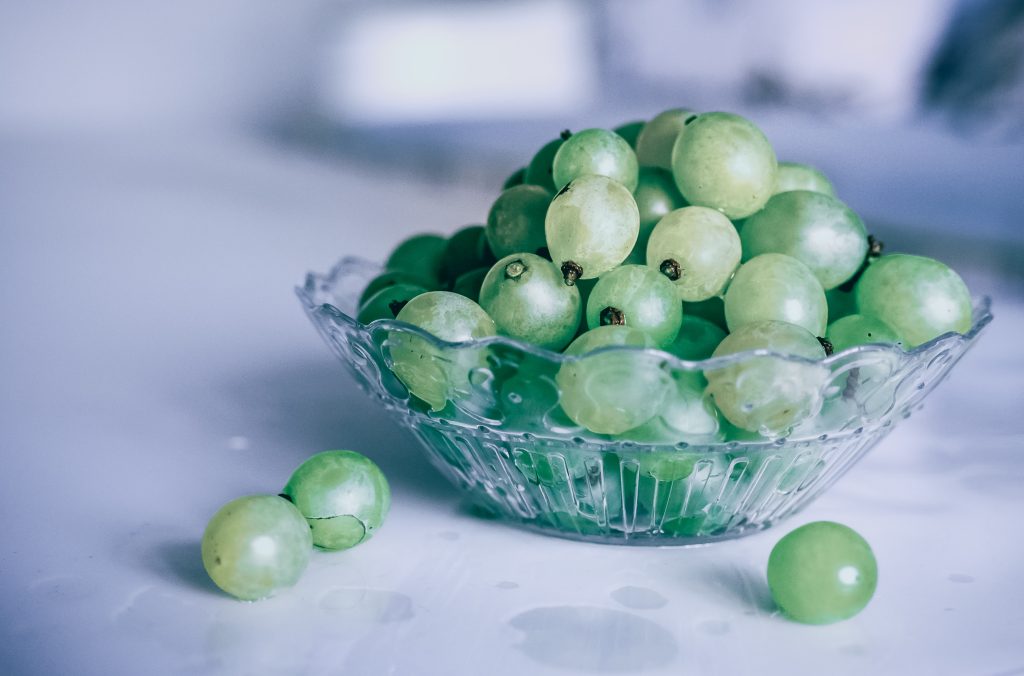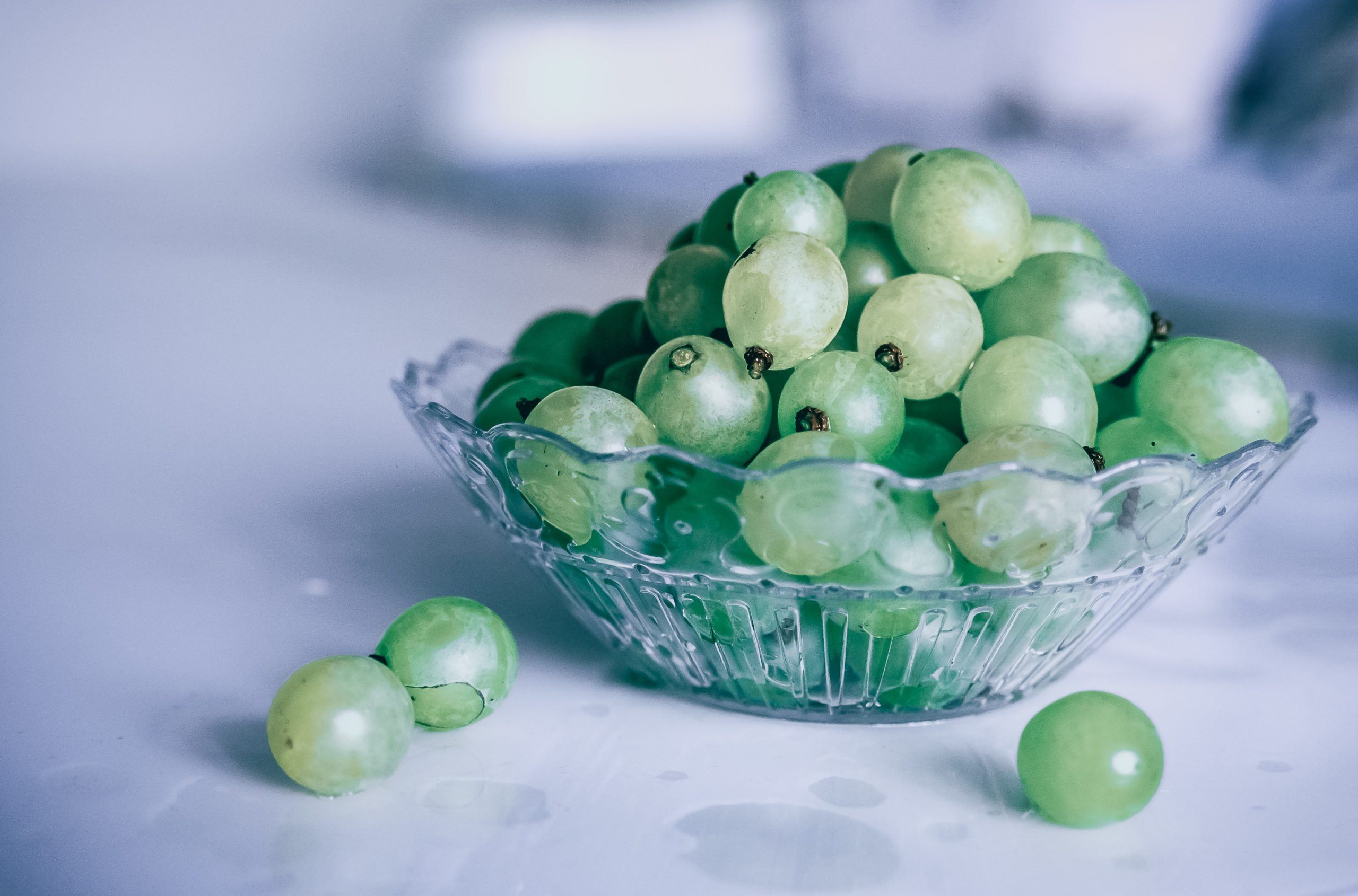Grape Dangers: Why Dogs Shouldn’t Eat Grapes
Grapes Dangers – Why Dogs shouldn’t Eat Grapes may be a topic many pet owners are not aware of. Grapes and raisins, their dried counterparts are toxic for dogs and can lead to serious health problems. This blog will explore the causes of this toxicity and how it can affect our furry companions. We’ll also discuss what you can do to avoid your dog accidentally eating grapes.
Grapes may seem like an innocent and tasty treat to humans, but are not good for our canine friends. Even a small amount can cause serious problems for dogs. This includes kidney failure or even death. Dog owners must be aware of this potential danger and know how to protect their pets.

Dogs and Grapes: What to Know
It’s vital that you are aware as a dog owner of foods which can harm your pet. Grapes are a food you might not have thought about. Grapes may be a tasty and healthy snack for humans but they are toxic to dogs. This article will explain why grapes can be dangerous for dogs, and what you should do to protect your pet.
Grapes and Toxic Substance
It is still unknown what substance in grapes is toxic for dogs. It is evident that even a small quantity of grapes can cause dogs to experience symptoms like vomiting, diarrhea and lethargy. In extreme cases, dogs can suffer kidney failure that is life-threatening.
How much is too much?
The amount of grapes and raisins that are toxic to dogs can vary based on their size and breed. Some dogs can show symptoms after eating just a few grapes or raisins. Some dogs are more sensitive to raisins and grapes. It is best to avoid any grapes at all.
It is important that you seek immediate veterinary attention if your dog has eaten grapes or raisins. Even if you dog does not show any symptoms, toxic effects may take up to several hours before they manifest. To prevent absorption, your veterinarian may administer activated carbon or induce vomiting.
Grapes are a tasty and healthy snack for humans but can be harmful to dogs. You should avoid giving grapes or raisins to your dog and seek immediate veterinary attention if you suspect that your dog may have consumed them. You can keep your dog healthy and safe by being aware of risks and taking precautions.
Signs & Symptoms of Grape Intoxication in Dogs
It is important to know what your pets eat. Grapes are a food that can be toxic for dogs but is often forgotten. Grapes can cause kidney failure, so it is important to know the symptoms and signs of grape poisoning. Here are a few of the most common symptoms.
Vomiting & Diarrhea
Vomiting and diarrhea are the first symptoms of grape toxicity. The symptoms may appear within hours after ingestion, and they can last up to a few days. You should contact your vet immediately if you suspect your dog may have eaten grapes.
Weakness and Lethargy
Lethargy and weakening are also symptoms of grape poisoning. Your dog might become weak and tired. Your dog may also seem depressed and lose appetite. Take your dog to the veterinarian immediately if you notice these symptoms.
Abdominal pain
Grape poisoning can also cause abdominal pain. When you touch your dog’s stomach, they may cry or whine. You may find that your dog has difficulty getting comfortable or lying down. Contact your veterinarian immediately if you notice these symptoms.
Note that not every dog will show these symptoms. Some may even not show them at all. It’s better to be cautious and call your veterinarian if you suspect your dog has consumed grapes or raisins. Grape poisoning can be treated quickly by your dog.
Treatment of Grape Poisoning for Dogs
It is important to contact an emergency veterinarian immediately if you suspect your dog has eaten grapes. Treatment can prevent serious health complications such as acute renal failure.
Inducing Vomiting
Your veterinarian may induce vomiting if your dog has eaten grapes in the past two hours. This will help to remove the grapes. This will help to prevent the absorption into the bloodstream of toxic substances. When performed by a vet, the process is simple and safe.
Fluid Treatment
Grape poisoning in dogs is treated with fluid therapy. Intravenous fluids are used to maintain hydration, and they also help eliminate toxins. Fluids can also be used by your veterinarian to prevent kidney damage and support kidney function.
Medications
You veterinarian may prescribe medication to manage symptoms and help your dog recover. They may include nausea medication, gastroprotectants, and kidney support medications. The treatment plan is tailored to each dog and can vary depending on how severe the poisoning was.
Remember that grapes, raisins and other fruits can be extremely toxic for dogs and cause serious health problems. Contact your veterinarian as soon as you suspect your dog may have eaten grapes. Grape poisoning can be treated by most dogs with prompt and appropriate treatment.
Prevention Is Key
It is our responsibility as responsible dog owners to ensure the safety and health of our four-legged friends. We can prevent them from eating grapes. Preventing our dogs from harm is the key. There are several things we can to to make sure that they cannot access grapes.
Keep Grapes Away from Reach
To prevent grape toxicity, keep grapes away from your dog. It is important to keep them off of surfaces that are easily accessible by your dog, such as tables, countertops and other surfaces. Keep grapes away from your dog in the pantry and refrigerator. Children should be told that dogs cannot receive grapes as a dog treat.
You should make sure your dog can’t get to the grapevine if you have one in your yard. You can use a fence to keep your dog from getting near the grapes. You should make sure your neighbor’s grapes don’t end up in the yard of your dog if they have a grapevine.
Alternatives for Grapes
Grapes are not the only fruit that your dog can eat. Some of the best options are sliced bananas, strawberries, blueberries and apples. These fruits are safe to feed your dog, and they also contain vitamins and nutrients which can improve their health.
Vegetables are a great alternative to grapes. Vegetables such as carrots, sweet potatoes, and green beans are all good for dogs. These vegetables are safe for your dog and are high in fiber. They are also low in calorie.
Keep in mind that prevention is the key to protecting your dog from grape toxicity. You can keep your dog healthy by keeping grapes away from them and providing safe alternatives.
Conclusion
It is important to keep grapes out of reach of your pet. Grapes contain a toxic substance that can cause kidney failure and death. You should also be aware of symptoms such as abdominal pain, vomiting, diarrhea and nausea in dogs. You should seek immediate veterinary attention if you suspect your dog may have eaten grapes. Keep all toxic food out of reach and keep a close eye on your dog to ensure his safety. You can ensure that your dog is healthy and happy by taking the necessary precautions.
FAQ:
Can dogs eat all grapes?
All grapes are toxic for dogs, even organic and seedless varieties. It’s best to keep grape products away from your dog. Even a tiny amount can cause serious problems.
Do dogs have a tolerance for grapes?
Dogs cannot become tolerant to grapes. Even a small quantity can be toxic and life-threatening. Keep all grape products away from your dog.
What are safe alternatives to grapes?
There are many healthy alternatives to grapes that you can give to your dog. Apples, bananas, carrots and blueberries are all good examples. Consult your veterinarian before adding any new food to your dog’s menu.

